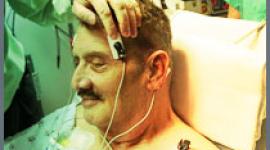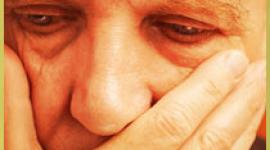A Depression Recovery Story
Taking Responsibility For Your Life
 I am reminded of the biblical quote around giving a man a fishing rod to catch his own fish, rather than feeding him a daily diet. Mental health issues are no different in this sense, than any other of the elements of life we must face. If we wish to have a chocolate bar, we must do a number of things to achieve that goal; such as walk to the shop, ensure we have enough money etc. Too often in my work, I meet people who have never taken responsibility for their lives, let alone their illness. Too often behavioural factors are blamed on mental health, as an excuse for not moving forward and making the most of life's abundance. We can liken this to many of the societal problems we see in our poorer areas. Lack of hope, self determination, living a preconceived idea of what is expected, rather than breaking free of the bounds that have taken us to this stage in life.
I am reminded of the biblical quote around giving a man a fishing rod to catch his own fish, rather than feeding him a daily diet. Mental health issues are no different in this sense, than any other of the elements of life we must face. If we wish to have a chocolate bar, we must do a number of things to achieve that goal; such as walk to the shop, ensure we have enough money etc. Too often in my work, I meet people who have never taken responsibility for their lives, let alone their illness. Too often behavioural factors are blamed on mental health, as an excuse for not moving forward and making the most of life's abundance. We can liken this to many of the societal problems we see in our poorer areas. Lack of hope, self determination, living a preconceived idea of what is expected, rather than breaking free of the bounds that have taken us to this stage in life.
Mental illness is not a reason to roll over and rely on others who have no vested interest in our recovery. It is a valid reason to take charge and make the most of what we have. Our strengths in being able to survive are phenomenal, and give us a greater advantage, I feel, over the general population. How can you gain insight and strength if you have never been challenged in the ways that we have in our personal development? In this I can only look to my own personal development over the years; and the steps I have had to take to achieve a level of wellness that has allowed me to participate fully in life.
For me, hope was an issue that had to be addressed in order to consider moving on to the other steps of recovery. I had to accept my life was not over, that I was not baggage that could be disposed of in a corner and forgotten by society. I spent my life till 35 years with no label and no understanding that I had a mental illness (even though as a teenager I had been institutionalised for a period). I had lived my whole life with feelings of depression and suicidation. In not understanding what was wrong, I battled on and continued to suffer, striving constantly to be able to achieve the goals I knew I should be able to. When I hit a particularly bad low and was told I was suffering depression I felt like I had been released. With the knowledge that there was a legitimate reason for my feelings, I was able to actually begin to grow. For me, a label was a positive experience in that it allowed me to make sense of my life.
Slowly, I began to find out as much as I could about my illness and the rapid cycling nature of it. This knowledge was the basis that I could then re-build my self-esteem and life around. The more knowledge I gained, the more knowledge I realised I needed to know. I questioned my doctor, my community psychiatric nurse, other service users my friends I searched the Internet. It was from these varied sources I began to understand more about what was normal to feel and what was illness. I looked at the behavioural triggers and undertook counselling to remove as many as I could. If I realised I was reacting due to a past event from my childhood I acknowledged it and re-evaluated from my adult. I maintained a mood chart, studied the medications I was on, the side effects, combinations and expected outcomes. It took ten years to get my medication right, and I was the one in the end who suggested the combination that has proved to work.
Luckily I had a very good doctor who treated me as a peer and respected my input. This is not to say I always had such professional input. I have seen many doctors with varying results, some good some bad. But the knowledge and the will to live a full life made me question the opinions of the professionals. If I was not satisfied with the treatment or their response to me I took another. I had to be strong in advocating for my needs to be met. I could not sit back and allow others to decide what was in my best interest. This of course did not happen overnight. It has taken many years to reach the level I am at now. Especially learning to question the medical professions choices and rational.
I am well now and working full time because I have done the hard yards. Have taken responsibility for my life and my recovery (ability to live well in the presence or absence of mental illness). Created a supportive network of friends I can call if I need to. Though I must admit I still tend to isolate more than I should. Where hope was once an impossible dream, a term I never really believed in or accepted for my life. I am now living my life the way I want to. Achieving the goals I set for myself, participating in the way I wish to in life. Hope is now a term belonging to the past; I no longer need to hope as I have achieved that goal. I have the self-esteem I once lacked. I no longer try to hide my illness from others in fear of rejection, or feel that I am inferior to others. I control my life with the support of professionals and friends. I, like all who recover (be it mental illness or alcoholism etc), have learnt that the only thing that will make a difference is self-determination, the willingness to take full responsibility for my life.
next: Join a Support Group!
~ back to Mental Health Recovery homepage
~ depression library articles
~ all articles on depression
APA Reference
Staff, H.
(2008, December 28). A Depression Recovery Story, HealthyPlace. Retrieved
on 2026, March 4 from https://www.healthyplace.com/depression/articles/depression-recovery-story



